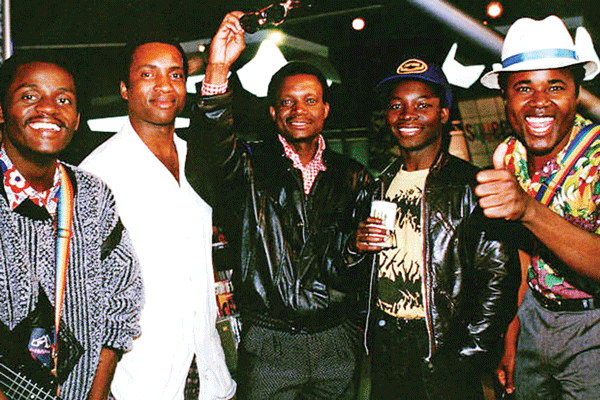
PRESIDENT Emmerson Mnangagwa is, by no means a new face to local politics. In 1980, at independence, when the late great reggae music icon Bob Marley came to Zimbabwe, a youthful Mnangagwa, bubbling with zest, was appointed Cabinet minister at just 37.
SOUND TRACK: Tapiwa Zivira

For half of his life, he has been part of the Zanu PF government and has surely seen it all — the good and the bad — and totally understands the dynamics that led to the current economic and political woes bedevilling Zimbabwe.
He must also understand why over two million people voted for the youthful MDC Alliance leader Nelson Chamisa and why the opposition is disputing the outcome and claiming the country is in a stalemate.
After being sworn-in as President last week, Mnangagwa is — just like a choir conductor — currently fully in charge and responsible for the direction the country will take. Not even failure to get recognition from the opposition can change that.
Given Mnangagwa’s exposure to the political intricacies of the country, he has a choice either to or not do the right thing. In this case, it will be the right thing to immediately diffuse the long-standing divisions among Zimbabweans.
He must take the role of unifier, in the spirit of Bhundu Boys’ song, Jekesa. Like the Jekesa that the group sings about, Mnangagwa must come out in the open, and with a sober mind, not follow the advice of some of his extremist supporters like war veterans leaders.
It is time for him not to follow the wind, not kupururudza ngoma isina kupfumbira (to celebrate too early), but to genuinely affirm these words in the Bhundu Boys’ song, “Ngatibatanei, tichishanda pamwe tese nyika yedu…” (Let us join hands and work together for our nation).
- Chamisa under fire over US$120K donation
- Mavhunga puts DeMbare into Chibuku quarterfinals
- Pension funds bet on Cabora Bassa oilfields
- Councils defy govt fire tender directive
Keep Reading
No nation is an island. And, as such, it is not out of order for Chamisa – who is a major player in local politics — to appeal to an African or international forum to intervene in the election dispute, but after all is said and done, the solution lies within our country.
Mnangagwa, the sheriff in town, the one officially in charge of the strong military elements in government and politics, has the responsibility to initiate a local, genuine, nation-building process.
Mnangagwa must confront the stalemate with an honest, mature and sober mind. It is his legacy that is at stake, and it is Zimbabwe’s future that we are talking about. It’s not an easy road as Jamaican ragga, dancehall and reggae musican Buju Banton sang, given there are hardliners within the ruling party; and the opposition is also aggrieved and bitter.
But, after spending half of his life in government, Mnangagwa must know what to do. We all remember that the country has gone through several dark periods, from Gukurahundi to Operation Murambatsvina, the hyperinflation era, the cholera years, political violence during elections, the chaotic land reform process, the current cash shortages, among many others. In all these phases, the nation has been deeply divided, traumatised and people died in circumstances that could have been avoided.
In all that, music — with messages that reaffirmed the then President Robert Mugabe and Zanu PF’s firm grip on power — worked as a propaganda tool, and it all but rubbed salt into the wounds of victims of his decisions and fomented the divisions among Zimbabweans.
Songs like Tambaoga’s Mutungamiri we Zimbabwe ndiBhobho, Mbare Chimurenga Choir’s Nyatsoteerera and the late Elliot Manyika’s Mbiri Yechigandanga come to mind.
In response, the opposition also coined songs like Dread Reckless’ Tombana and Saddam Waenda that mocked Mugabe and his government, further dividing the country.
At this stage, I believe all those divisive songs, including Mnangagwa’s favourite, Kutonga Kwaro by Jah Prayzah, are not necessary, and if music was a like a Bible scripture, my sermon to Mnangagwa today would be derived from one of Thomas Mapfumo’s not very popular songs, Zvirwere, off the album Rise Up.
It opens with female vocalists singing about the bad state of our country, mourning over the high number of people falling sick, but with no doctors and drugs in the hospitals.
Then Mukanya enters with his response, calling on all and sundry to come together to build the nation and shun divisive elements. The song goes on, calling on the need for investment, genuine unity, which Mnangagwa has to fully commit to if he is to be a success.
Mukanya’s scripture ends with a clarion call to build more schools, fund the health sector and luring those scattered in the Diaspora to return home and help in the reconstruction of their nation.May the good, unifying music play on…
Tapiwa Zivira writes in his own capacity. He can be contacted on [email protected]











